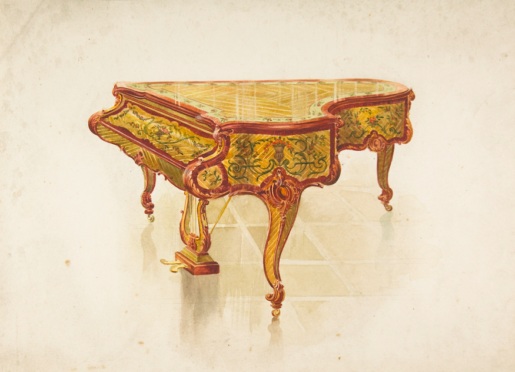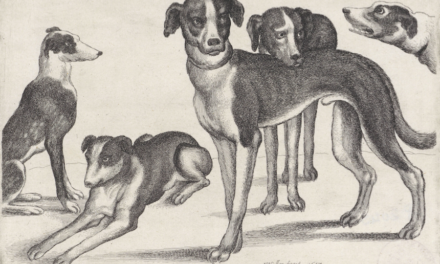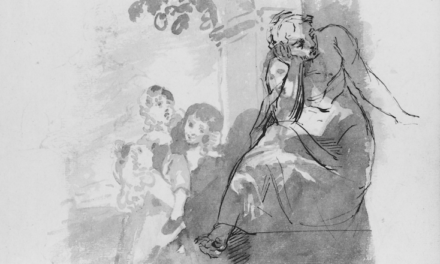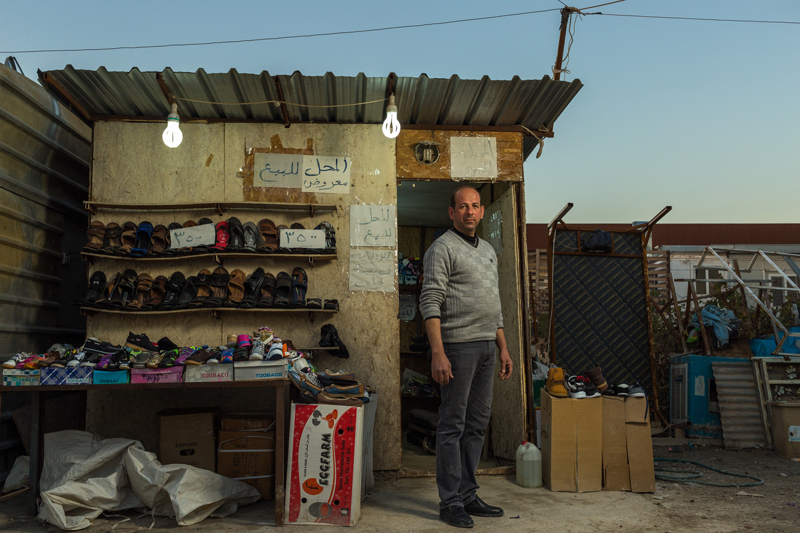“Design for a Piano” by Anonymous, French, 19th century. The Metropolitan Museum of Art, New York.
Just Jump It
memoir excerpt by Mary E. Wood
Something was in the air. All week, a hot, dry, wind had been blowing into L.A. from the desert. Inside our Hollywood bungalow, half a block up from Highland Avenue, my parents slid past each other, silent, their backs to the wall. Adrian, June, and I eyed each other across the braided living room rug. The television, all grainy and blurred, never quite right despite Dad’s repeated attempts to fix it, blared out news of the Vietnam War. Adrian picked up his guitar. He didn’t exactly play. He was twelve, two years older than me, all bony and far away. His slender fingers draped over the strings, tapping them ever so lightly, tap, tap, tap. The strings buzzed like a fly in the window screen.
Mom and Dad circled each other like cats new to the neighborhood. We scuttled around them, staying out of the way. As dinnertime approached, we settled on a chair and sofa, clutching comic books, coloring books, a novel from the library.
My mother had been away at a mental hospital. Schizophrenia, the doctors said. But now she was back, slower and steely-eyed. She had seen things we couldn’t imagine and lived in rooms we didn’t know. Dad went to visit her, but she crumpled and lay still at his feet. Better come back later, they said.
In the dining room, Mom set each plate down with a loud thunk on its yellow flowered place mat. Every few seconds, she glanced at Dad where he now sat behind the newspaper. Then, she cast her eyes quickly, furtively, at the baby grand piano that hunched like a black bear in a corner of the living room. It wasn’t more than fifteen feet away from her, but she measured the distance as if she were hatching her escape route over the Alps.
Mom disappeared back into the kitchen. Still reading his newspaper, clutching the pages with his big, freckled hands, my father had one ear cocked to the sounds coming from the kitchen as she got ready for dinner– the clang of the stewpot on the stove, the thook of the refrigerator door, the clomp of her shoes around the table. She walked like that, her feet flat and heavy. Sometimes, she whistled, purposefully or not, her lips pursed to a precise, tiny point.
Out of the corner of my eye, I saw Dad turn his head slightly as, like a cat that’s done with its racket in the alley, Mom eased back into the dining room, quietly slipping off her apron. I softly turned a page in my book as Mom began to tiptoe towards the living room, first slowly, then a little more quickly. Soon she was almost running, her eyes locked on the finish line, the piano. Dad crushed the newspaper into his lap and glared at her. She slid onto the piano bench, scooted it out slightly, then, in one smooth motion, pulled out her yellow Schirmer’s book of Chopin waltzes from a stack on top of the piano and opened it on the stand above the keyboard, victorious.
Her back a wall, her eyes focused only and completely on the notes in front of her, she began to play. Her long brown-black hair, pulled back in a ponytail, quivered as she moved her head just a little, this way, that way.
Adrian, June, and I didn’t move a muscle, afraid that the slightest movement would break the spell and back she’d go into the kitchen, where she’d move slowly about the stove, her eyes still and far away. We held our breath as she searched for the first note. Our dog, Paulette, whose brown fur stood up every which way, lay still against the couch with her chin on June’s foot. She slid her dark eyes from Dad to Mom, then back to Dad, moving nothing else but her archy eyebrows.
The waltz started on a single B-flat that stabbed the air once as if to get someone’s attention, then repeated, like a poke over and over that said, Come on, I mean it, look at me and listen to this, but then just as you turned to hear what it had to say, that note began to run, and it kept running, dancing as it went, turning back to laugh at you as it whirled across the floor.
As she played, my mother’s touch lightened. Her hands must have been slightly wet still from rinsing lettuce because, without missing a beat, she quickly snatched her left hand from the keys and wiped it on her shift, then brought it back to the keyboard just in time. She played now delicately, as if touching the head of a new chick, then firmly, as if telling you what to do, always with exactness, as if the dancers depended on her alone. They twirled and skated across the floor, not caring at all about the fading light outside the window, about the drifting smells of chicken and potatoes and the broccoli starting to burn as the water boiled away.
Dad set down his newspaper, splaying it out noisily on the coffee table. I didn’t dare look up, afraid of drawing his attention, but as he leaned forward to stand up I caught a glimpse of his ear and the jaw beneath it, the muscle pulsing almost to the rhythm of the waltz. He began to pace the floor behind my mother’s small, rounded back. The whir of a helicopter started off in the distance, then got louder, coming closer. A searchlight flashed across the window. The LAPD was looking for someone on the Hollywood streets, as they did almost every night these days. My mother played on, impervious to Dad’s pacing and to the thwap-thwap-thwap above us in the sky.
Another single note sang out on the piano, higher this time, repeated. This one didn’t poke; it trembled, like a bird high up on a thin branch, poised, then lifted off higher still, up and away, leaving the small people on the ground far below. My father paced faster, his eyes fixed on a spot somewhere between himself and the wall each time he turned. His brown lace-up shoes darted into my line of vision like rabbits, then retreated, reappeared. Without lifting our eyes, we watched. We waited. The helicopter moved off, then returned, louder than ever. It moved away again. The whirring faded into the night.
Suddenly Dad stopped and faced my mother’s back. “Alice,” he shouted, “It’s time to get dinner ready! It’s late and the kids need to eat!”
My mother kept playing.
“Come on, Alice!” shouted my father. “Come on!”
She stopped, all at once, clenching her hands and dropping them into her lap. In that silence, my mind kept going—the rush and build as the dancers whirled faster, the soft slow quieting as they drifted in each other’s arms and the moon began to shine through the high windows of the candle-lit hall. My hands felt tight and dirty in the dry heat. Without turning around, Mom closed the book of waltzes. She laid it back on its stack, then folded down the black cover that hid the piano keys. She stood up and went back into the kitchen, her face closed and far away, calm, separate. As she passed, she glanced at me without turning her head and gave me a quick, almost invisible little smile, as if the two of us were little kids who had just gotten away with something.
Suddenly, I jumped. My heart thumped away in my chest. It was as if a whole shelf of dishes had crashed onto the floor. My father was at the piano. His hands moved up and down the keyboard in both directions, his body swaying and jerking first one way and then the other. Another Schirmer’s book was open in front of him. It was Chopin’s Polonaise, the one he loved. Dad didn’t look at the music. His head turned this way and that, following his hands, like a crow looking for the worms scratched up by its own feet. The shutters buzzed against the windows.
June got off the couch and crept towards our bedroom door, then into the bedroom. She hated loud noises. Paulette slunk after her. Ever so quietly, June started to close the door. She was only seven and didn’t quite get that it was usually better to stay put.
“Where are you going?” Dad shouted over the marching chords of the people’s revolt against Russia. “Get back in here!”
June slid back out and sat down again, slouching over until her left ear settled onto the arm of the sofa. Adrian stared out the window. He appeared to be listening, but I could tell he was thinking about something else altogether. He had something of a tic, which made his shoulder jerk, now, now, to its own private rhythm. My mother came into the dining room and stood next to one of the chairs, her hand on her hip, waiting, her stare a long thin line that stretched under the archway and stopped just short of my father’s back. Dinner was ready, but we had to wait. Dad played on, pushing the notes and chords along all at one volume as if he were plowing a field, the dirt flying up behind him, his eyes fixed on the end of the row. The melody plunged from high to low, then soared high again, with an insistent trill, not like a bird’s singing but like a scythe cutting through wheat, readying itself at the height of the swing before each slicing plunge. My ears rang with the power of it as the soldiers rode their horses hard against the tsar’s army.
Finally, with a crash, my father’s hands came down on the keys then pulled upward as if thrown off by the piano itself. The last chords gusted through our living room and, I imagined, out into the streets of Los Angeles, where the palm fronds quivered in their wake. Dad sat motionless, his hands suspended above the keys as the last notes faded away. Then he stood up deliberately, grandly, as if beckoned by an invisible conductor. Just as he seemed about to take a bow, the back of his legs caught against the piano bench and it tipped over backwards, clattering onto the floor. The lid popped open and sheets of music flew everywhere.
“Judas Priest!” Dad bent over to gather up all the loose sheets. “Don’t just sit there, kids!”
We scurried around picking up music from under the big stuffed chair and along the base of the window seat. Well, June and I scurried. Adrian moved slowly, like a sloth. I carefully slid a sheet out from where it had fallen between the pedals of the piano.
“Dinner’s ready!” declared my mother.
I looked up from where I was on hands and knees under the piano and caught her eye. Again, I thought I saw that smile, but in a second it was gone. In that smile was everything—the victory of her waltz, the pain of its interruption, her apology to us for our father’s violent music. As I think about it now, so many years later, beneath that apology lay a deeper one for the loss of the person she used to be. Her schizophrenia washed over us all like a flood that swept away so much—her concentration, her life force, her desire to fly out into the world as she used to do. It was an apology she both offered and refuted, like a two-part invention played day after day, pianissimo, full of sweetness, rage, regret.
* * *
A baby grand piano longs to appear at Carnegie Hall, but never will. Instead, it hunkers down in somebody’s living room. It might sit neglected in the corner of a fancy house. Or it might take up almost one whole room of a small bungalow, and find itself right in the middle of things. It longs to be respected, appreciated at a distance. But instead it’s often caught up in the fray, given no choice but to bear witness, take sides, conspire, love and be loved.
“Can we have lessons?” we asked our parents. The three of us ganged up on them, which sometimes worked.
“No money for lessons,” they said, “but we can teach you.”
But neither of them really got around to teaching us, at least not in a “lesson kind of way.” Later in life, I would be shocked to learn that people had dreaded and hated their childhood piano lessons. In our house the piano was a powerful being, like a god, or like a Siren in the story of Odysseus. When Dad wasn’t home, or when he was typing away down in his study with the radio turned up, I would slink my way over to the piano, drawn there against my will, despite the dangers. If Dad heard me, he would rush up, bump me aside, and plunge into the piano as if it were a great black swimming pool. The Siren called to him as well.
If I succeeded in claiming the piano for my own. I took down one of my mother’s music books, opened it up to a sonatina or a waltz or a mazurka, and worked my way through it, note by note. I wasn’t quite sure where each note lay on the keyboard, but I could count up or down from the ones I knew until I found it and it sounded more or less right. My mother bought us a long cardboard foldout that, when you spread it out above the piano keys, showed you which note went with which key. I looked back and forth back and forth from the foldout to the keyboard to the page sitting just up above my eye level.
One day I searched through the records, which were propped up on the window seat next to the piano—Chopin, of course, and Beethoven, Schubert, and Franz Liszt. Finally, I found one of Vladimir Horowitz playing Chopin waltzes. I played the record over and over until I decided on the piece I wanted to learn, one Mom liked to play. Every day for a couple of weeks I rushed home from school, hoping to commandeer the living room before anyone else had a chance. It took me a couple of days to match the music with the waltz on the record, going over the first two measures of every waltz in the book as I played the track again and again.
My mother paced through the living room, studying the floor. She did that all day, around the house from room to room. Paulette followed along behind, her nails clicking on the wood floor. Suddenly Mom looked up at me.
“What are you doing?”
“Oh, nothing. Just listening.”
She kept going in her orbit through the house, and I played the track again.
When I finally found the right music, I played a few measures, then listened to the piece section by section. The waltz was way too hard for me and at times I felt pretty frustrated, but it didn’t occur to me to try something more at a beginners’ level. I was working with what I had. And I wanted to learn the pieces that my mother played. As she floated by, she stopped to show me how to do a trill, starting from the higher note. Another time, she explained the sideways v-lines that meant louder or softer and pointed out how the tiny numbers over the notes told you which fingers made the most sense. The music was covered with markings Mom or her teacher had made in pencil, like a story I couldn’t quite make out.
There were many things I didn’t understand, like how you could play eighth notes with the left hand while you were supposed to be playing triplets with the right.
“Oh, don’t worry about that,” said my mother. “Just do it the best you can.”
Or how to play a chord with two C’s in it when my hand could only span seven notes at most.
“Just jump it,” she said.
I tried that, jumping from thumb to pinky over and over until it almost sounded like I was hitting both notes at the same time.
Still, I was furious. Why wouldn’t she explain it to me? I kept it to myself, not wanting to upset her. She had a very hard disease, so they said, and none of us wanted her to disappear back into that hospital. None of us wanted to watch her dark eyes turn into whirlpools or to cover our ears as she told the neighbors that the Nazis were coming to kill us or that the surgeons were putting on their disguises and sharpening their knives.
So I put the record on again and listened to Horowitz three more times. It was just too fast for me to figure out what he was doing.
We had a reel-to-reel tape recorder that my father used to record his practices for the L.A. Opera, where he sang the tenor parts. It stood in a mustard-colored case on a tall skinny table crammed between the Webster’s Dictionary stand and the television, which was set on top of our old television in its wooden cabinet. When you leaned over the reel-to-reel to stare at the buttons, your hand on the rough case, you would catch whiffs of dust and glue wafting up from the delicate, slithery tape. One day my father had showed me how to use it. He opened the score to “La Boheme” and launched into the piano accompaniment.” NOW, he gestured with his head, and I pushed the “Record” button. He sang his heart out to his lover Mimi as she died of consumption in her cold attic room.” Tears came into our eyes, Dad’s and mine. NOW he gestured again as his last note faded off into nothingness, and I pushed Stop. Soon after he showed me how to thread the tape through, then how to splice it to take out what you didn’t want and thread it through again.
My friends weren’t allowed to monkey around with their fathers’ sound systems. Their brothers could, maybe, but the dads didn’t even have reel-to-reel tape recorders right there in the living room the way we did.
I set up the machine to record my own piano playing. I had to push the Record buttons and then run to the piano bench. I tried not to scrape the bench legs against the wood floor as I sat down. I played the piece, but kept messing it up. Each time, I had to run back to press the “Stop” button and start all over.
June passed through and cocked her head at me like some kind of detective. Except that with her scrunched-up brow and plaid dress, she looked more like Gretl from The Sound of Music. “What are you doing?” she asked. “Does Dad know you’re using the tape recorder?”
“Oh, leave me alone,” I said. She shrugged and left the room.
Once I got through the piece, I played it back again and again, listening closely to hear what I was doing wrong. But that one section, the triplets against eighth notes, was impossible. I simply couldn’t do it. As soon as I started the triplets with my right hand, my left hand started trying to match what its twin was doing, until it lost the rhythm altogether. It was all mixed up. Why couldn’t I play it the way Horowitz did, like a waterfall, like deer running through the woods with their fawns following after, with their small, quick steps?
Despite my frustrations, I discovered a couple of things. First, I learned that if I memorized the piece I could free myself from the bossy and frustrating sheet music, with its marking from another time that reminded me that I didn’t really have a piano teacher and that my mother had a life before she got sick and before I existed. Once I memorized the piece, complete with all my mistakes and the parts I just didn’t get, I could climb inside it, and inside the piano itself, as if it were a cave whose tunnels, walls, and crevices I could now explore, its stalagmites and stalactites, its hidden rivers. I also learned that a piece of music has different parts, the friendly parts that welcome you and carry you along, and the evil, cruel ones that hammer at you, and the dull parts that bore you and make you want to stop. Sometimes, you do stop. You lift your hands from the keyboard for the briefest of moments, than catapult ahead to the climax of the story, or to the sad interlude—the mournful, lovely melody that to you is the center of the piece, the whole reason you took Horowitz out of the sleeve and played that section over and over in the hopes that it could become yours.
Mary Elene Wood lives in Oregon with her partner Grace, teenage daughter, two dogs, and four cats. Her writing (fiction and memoir) has appeared in the Missouri Review and the British Journal of Medical Ethics. Her book Life Writing and Schizophrenia: Encounters at the Edge of Meaning (Brill, 2013) includes a chapter on her mother’s experience of living with schizophrenia.






